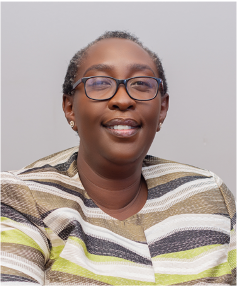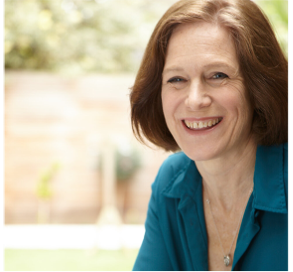CASA Webinar 6: Rethinking Agribusiness Investments After Covid
CASA EVENT
CASA Webinar 6: Rethinking Agribusiness Investments After Covid
On 28 April the CASA Breakthrough Webinar explored the reality on the ground after a year of COVID-19. The panel drew on examples from Africa to unpack the impact of the pandemic on investment and discuss the next challenges on the horizon. There was a strong focus on the information needs of investors and how appropriate investment strategies that can be applied now in relation to agricultural value chains.
This event built on the success of the CASA webinar series of April and May 2020: “Rethinking Agribusiness Investments Through the Pandemic”
See a summary below.
Agricultural investment after covid
This summary can be downloaded:
One-pager Webinar 6 Investment after Covid April 2021 pdf
A year into the covid-19 pandemic: where are we now?
The April 2021 CASA Breakthrough Webinar explored the reality on the ground after a year of COVID-19. The panel drew on examples from Africa to unpack the impact of the pandemic on investment and discussed the next challenges on the horizon. There was a strong focus on the information needs of investors and how appropriate investment strategies can be applied now in relation to agricultural value chains.
Sami Khan – CDC Group: The impact of the pandemic on investment by direct finance institutions and the performance of agricultural value chains.
CDC Group has had a large focus on food security, climate change, and nutrition, but the intensity and urgency of these goals were dramatically increased during the initial months of the pandemic. In CDC Group’s core geographies, the pandemic led to a much larger food security issue, which required innovative, bold and non-conventional approaches to manage the interim challenges moving forward (preserving, strengthening, and rebuilding).
Through the lens of resilience and agility, CDC Group developed a three-tiered response:
- During the first 12 months the focus was to improve liquidity in portfolio companies and ride out COVID impact;
- Focusing on strengthening supply chains or portfolio companies and promote smooth trade flows;
- Focusing on agility, rebuilding, and recovery.
CDC’s overarching goal was to ensure that local supply chains advocate to support domestic demand and keep food supply moving smoothly and affordably in the event of future trade disruptions taking place. The role of agri-tech in providing a market-building mechanism, addressing some of the structural market issues and creating equitability in the system, especially for SMEs and smallholder farmers, has been accelerated and amplified by the pandemic.
Sheila K Mugyenzi – Uganda Investment Authority: The impact of the pandemic on the performance of and investment in the agricultural sector in Uganda.
During the initial months of the pandemic, the government of Uganda imposed a series of mobility restrictions. This affected the volumes of agricultural goods traded internally and externally and restricted movement of people. This led to a decline in demand for food because schools and hotels were closed. The transportation of agricultural produce was more affected than the production of food.
The market disruptions in Uganda accelerated the emergence of innovative approaches to cope with and address these challenges. Agri-tech has been adopted that better connects farmers and markets, whilst facilitating financial and information flows. There has been newfound innovation in Uganda. For instance, enterprises now are able to utilize online marketing and deliveries. Another positive impact was that farmers diversified their sources of inputs and used their skills to respond to demand. New investors entered the agricultural space.
Ms Mugyenzi was hopeful that Uganda will pass their biotechnology bill, the Genetic Engineering Regulatory Bill, which she believed would positively impact on available inputs.
Philip Boahen – African Development Bank: The impact of the pandemic on agricultural value chains in Africa and the appropriateness of investors’ responses
The African Development Bank needed to respond in a way that provided immediate relief, but also built resilience now and into the future. They implemented a program called Feed Africa Response to COVID-19 (FAREC) to address specific issues faced by the agriculture sector. Their focused response addressed food systems: stabilization of food prices, support services, promoting localized food production optimizing food processing and storage capacity, provision of policy support, establishing food security task forces, and supporting regional initiatives. The bank highlighted a need for building integrated agriculture value chains. Moving forward, the African Development Bank will prioritise the provision of policy support, working more with the private sector and putting into place more innovative financing instruments.
Questions investors should be asking themselves in light of these considerations:
- What is the role of international finance institutions in supporting a more integrated food system approach to improve the future of agriculture financing?
- How can impact investors and development finance institutions continue to encourage and support portfolio businesses to be adaptable, diversified and resilient?
- Is there a role for commercial lenders to invest in agricultural support services and technologies, which can in turn help improve resilience of food systems and de-risk direct investments in agribusinesses sourcing from smallholders?
SPEAKERS

Sami Khan
Sami Khan (panellist) leads the food and agriculture strategy at CDC Group Plc. CDC is the UK Government’s DFI with a core geographical focus in Africa and the Indian sub-continent with assets under management of close to $ 7 billion. CDC has pioneered DFI investing in Africa and Asia with over 70 years of successful development work. It is one of the largest investors in the African and Indian food and agriculture sectors.
Sami has nearly 25 years of experience in the food and agriculture industry in emerging markets in various capacities from supply chain management, contract farming, private equity investing, strategy & agtech consulting and marketing/ business development. Prior roles include Director of Food & Agriculture at Accenture for S.E Asia in Singapore, Director of Food & Agriculture investments at Khazanah (Sovereign Wealth Fund of Malaysia), Operating Partner at Rabo Equity Advisors (pioneering food and agri PE platform in India) and Head of Food & Agri Research and Advisory at Rabobank S.E Asia in Singapore.

Sheila K Mugyenz
Sheila K Mugyenzi (panellist) is the director of investment promotion & development at the Uganda Investment Authority. Sheila has 20 years’ experience of investment promotion. She progressed through the ranks to become the Director responsible for investment Promotion and facilitation and the aftercare teams. Sheila has developed Uganda’s strategy to target strategic investors. Uganda Investment Authority’s strategic objectives include, reducing the cost of doing business, strengthening private sector capacity to drive growth and create jobs and strengthening enabling investment environment.

Dr Martin Fregene
Dr Martin Fregene (panellist) is director of agriculture and agro-industry at the African Development Bank. He is a plant geneticist and molecular breeder with 25 years of experience in genetics and breeding of cassava. Dr. Fregene developed the first molecular genetic map of cassava and started the first cassava molecular breeding program to accelerate development of improved cassava varieties for various agro-ecologies of Africa, Asia, and Latin America. He began his career at the International Institute of Tropical Agriculture (IITA), Ibadan, Nigeria, in 1991 as a cassava breeder.
Whilst at IITA, he was a recipient of a Rockefeller Foundation post-doctoral fellowship on genetic mapping (1993-96) that took him to the International Center for Tropical Agriculture (CIAT) in Cali, Colombia. After CIAT he joined the BioCassava Plus project at the Danforth Center, a multi-national development program funded by the Bill and Melinda Gates Foundation, where he rose to the position of Director of the project. Dr. Fregene received his B.S. and M.S. degrees from the University of Ibadan, Nigeria, graduating at the top of his class. His Ph.D. in plant genetics and breeding, also from the University of Ibadan, Nigeria, was in collaboration with IITA, the John Innes Center, Norwich UK, and CIAT.

Alice Chapple
Alice Chapple (moderator) is an economist and a specialist in impact investment and impact assessment. She is CASA’s investment adviser and she established Impact Value in October 2012. Prior to this Alice worked as director of sustainable financial markets at Forum for the Future. She also worked as as financial analyst, fund manager and social and environmental advisor for the CDC Group. Alice’s current roles include chair of Investor Watch, independent chair of the CDC Plus (Technical Assistance) Committee, trustee of the Shell Foundation, and member of the Advisory Boards of Sainsbury’s Foundation, Frontier Finance Solutions and Connected Asset Management.
Stream
LEAVE A COMMENT
We welcome your feedback on all CASA events and activities. Please leave any questions or comments below.
Leave a Reply
You must be logged in to post a comment.
We look forward to hearing what you have been doing to adjust your invesment strategies in light of the COVID pandemic…